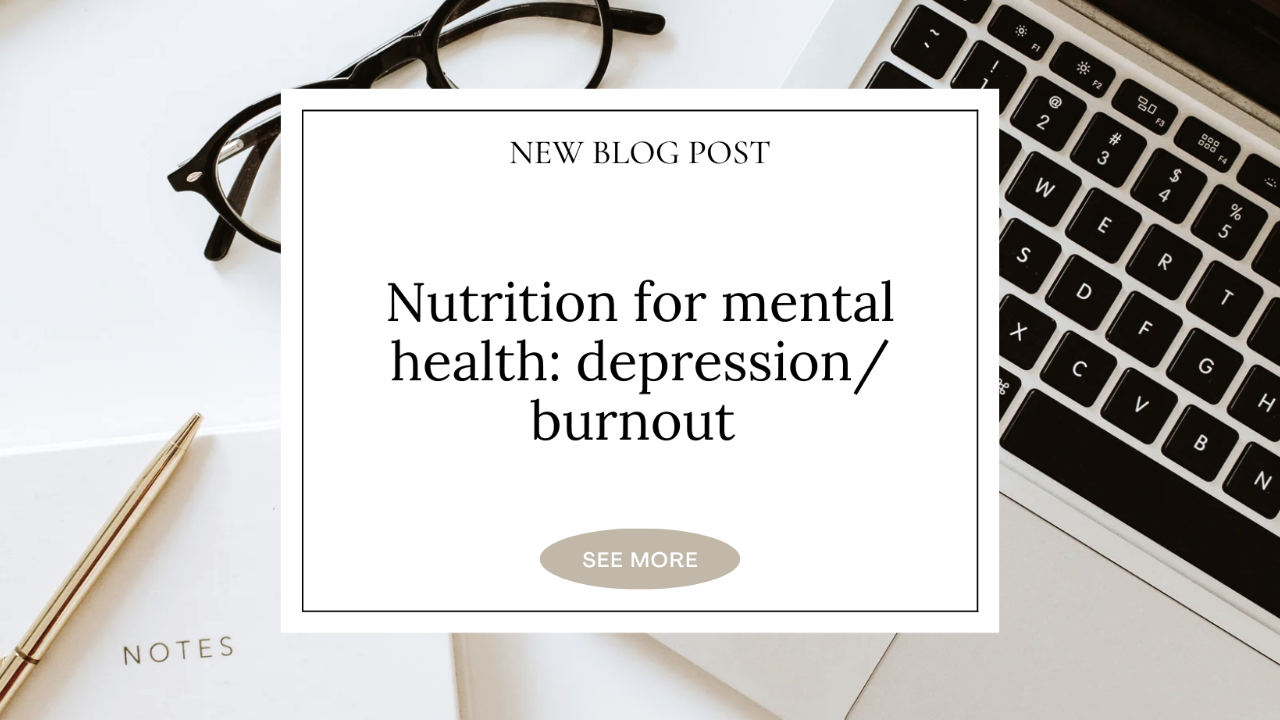Nourishing the mind: Nutrition Tips for Mental Health
Feb 13, 2025
In the journey of maintaining mental health, nutrition often plays a pivotal yet understated role. When dealing with depression, the intricate link between mental well-being and dietary habits becomes even more pronounced. This blog post delves into how nutrition impacts mental health and offers practical tips to help nurture both body and mind.
Why Nutrition Matters in Mental Health
Depression can significantly alter your relationship with food. It might suppress hunger cues, making self-care and regular eating patterns less of a priority. The brain, a high-energy organ, demands a steady supply of nutrients to function optimally. When mental health is compromised, energy levels and motivation dip, affecting dietary choices.
Appetite changes are common, especially with the use of certain medications like SSRIs, which can alter neurochemical balances. Often, people gravitate towards hyper-palatable, nutrient-poor foods, leading to a cycle that can exacerbate mental health issues.
Building a Nutrient-Rich Diet
A diet rich in vitamins, minerals, healthy fats, and fiber from fruits, vegetables, whole grains, nuts, and seeds can be a game-changer for mental health. Such a diet supports brain function and overall well-being, providing the essential nutrients that are often deficient in those struggling with depression.
Practical Tips for Better Nutrition
-
Scheduled Meals: Set reminders on your phone to ensure regular meal times. This helps re-establish hunger cues and fosters a routine.
-
Prioritise Mental Health Activities: Engage in activities that boost mental health, such as exercise, spending time in nature, or connecting with supportive friends.
-
Outsource Meal Prep: Consider meal prep services or automate your grocery shopping to reduce the mental load of planning and cooking.
-
Accountability Partners: Find a friend or family member to support and keep you accountable in your nutrition journey.
-
Focus on Nutrient-Dense Foods: Prioritise whole, unprocessed foods and create barriers to accessing processed foods, like deleting food delivery apps.
-
Seek Healthier Dopamine Sources: Engage in music, creative projects, or any activities that naturally boost dopamine levels.
-
Gradual Habit Changes: Avoid overwhelming yourself by trying to change too many habits at once. Take small, manageable steps.
-
Express Yourself: Cultivate comfort in expressing your emotions and feelings, which can relieve stress and improve mental health.
In essence, the path to mental well-being is multifaceted, with nutrition being a crucial component. By making mindful dietary choices and embracing supportive habits, you can nourish your mind and body, paving the way for improved mental health. Remember, change is a process, and taking small steps can lead to significant improvements over time.
Consider 1:1 Nutrition Coaching with me now to unlock your full potential
Stay connected with news and updates!
Join my mailing list to receive the latest news and updates.
Don't worry, I hate spam too.
I hate SPAM. I will never sell your information, for any reason.

